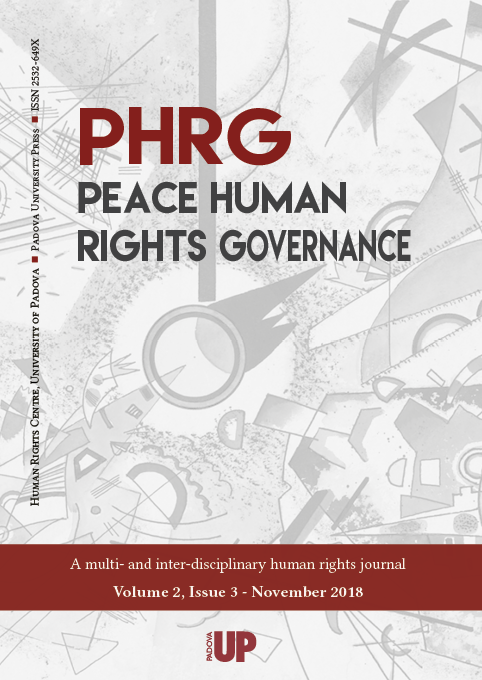Raccolte

Interface between Traditional Knowledge (TK) and Human Rights in Realizing Right to Health and Health Care – An Indian Perspective
- Sito internet
- Peace Human Rights Governance 2(3)
- Tipologia pubblicazione
- Articolo / Saggio
- Pagine
- 331-345
- Lingua
- EN
India is rich in genetic resources and traditional knowledge (TK) and it is one of the countries with mega biodiversity. Traditional knowledge used by Indian indigenous and local communities is the backbone for their existence, especially in key sectors of food and health. More than 1.5 million traditional medical practitioners in India use medicinal plants for preventive, promotional and curative purposes. About 65% of the Indian population relies upon traditional medicine for its healthcare needs. The World Health Organization (WHO) has stated that the goal of ‘health for all’ will be accomplished with wide usage of herbal medicines. The relationship between traditional medicinal knowledge and IPR is intricate relates to the equitable sharing of benefits arising out of the commercial exploitation of such knowledge. Hence, this paper argues for the rising need to preserve the traditional medicinal knowledge of the India, and translation of the traditional knowledge into drug development programme. This paper also aims to elucidate the theoretical framework of role of TK in realizing right to health, to identify the potential manifestations and causes of violations of the right to health in practice. The human rights approach will enable the researcher to bring a perspective on potential challenges to the rights of the various stakeholders in creation of TK. This paper concludes that TK can contribute to realizing the right to health through their availability, accessibility, acceptability, and relative quality.

